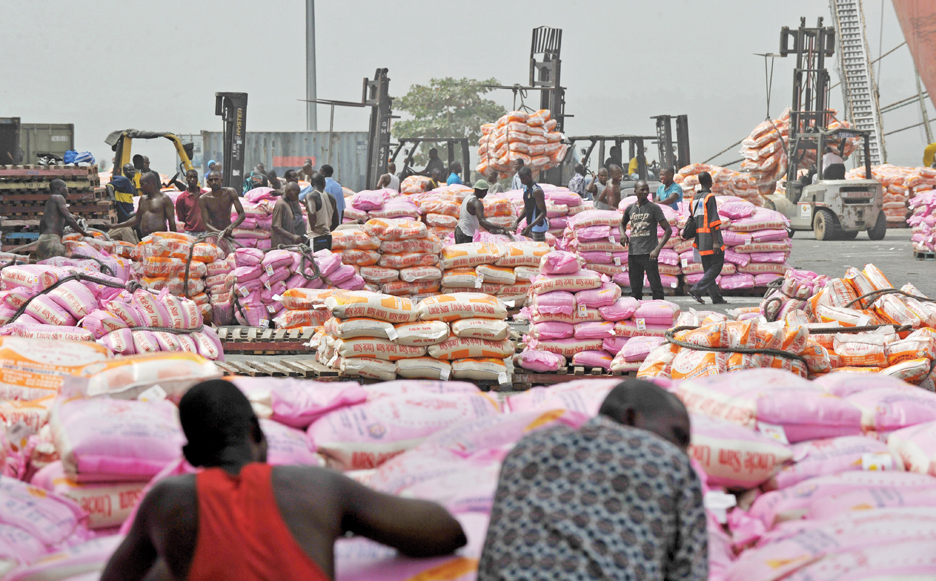REUTERS
Côte d’Ivoire is increasing rice production and processing in hopes of beginning exports in 2018 and generating more than a million jobs.
The country, better known as the world’s biggest cocoa producer, is investing about $4 billion on the regional staple food as part of a program to diversify its agricultural sector.
The nation’s economy grew 9.8 percent in 2012, but unemployment among its 20 million people remains high, especially among the young.
Although the nation currently is a rice importer, Yacouba Dembele, director of the National Rice Development Office, is targeting self-sufficiency within two years. “We want to be the granary of the [West African] subregion, and from 2018 we want to start to satisfy the subregion’s rice needs,” Dembele said. “We have the potential.”
Under the program, the government is organizing distribution of high-yield seeds to farmers and bankrolling the development of new production areas and irrigation systems. In and around the western town of Gagnoa, one of the areas that has benefited from the program, dozens of new rice plots have appeared.
“There were plots that were abandoned and which are now being used,” farmer Mamadou Diaby said. “We have abundant rainfall, which means that we can grow year-round. There are plots that are doing two or even three harvests a year.”
Côte d’Ivoire’s rice production jumped to 980,000 metric tons in 2012, the first year of the development plan, compared with 550,000 metric tons in 2011. In 2013, production hit
1.2 million metric tons, with output projected to rise to
1.6 million in the 2014 season.
Imports, meanwhile, fell to 830,000 metric tons in 2013, from 1.26 million metric tons in 2012.
Côte d’Ivoire will need to reach production of 2 million metric tons before it becomes self-sufficient. Dembele hopes to hit that target in 2016. The government then plans to build up stocks to guard against international price fluctuations before starting exports to regional neighbors two years later. Côte d’Ivoire’s government expects locally produced and processed rice to go on sale alongside imported rice by April 2015.

